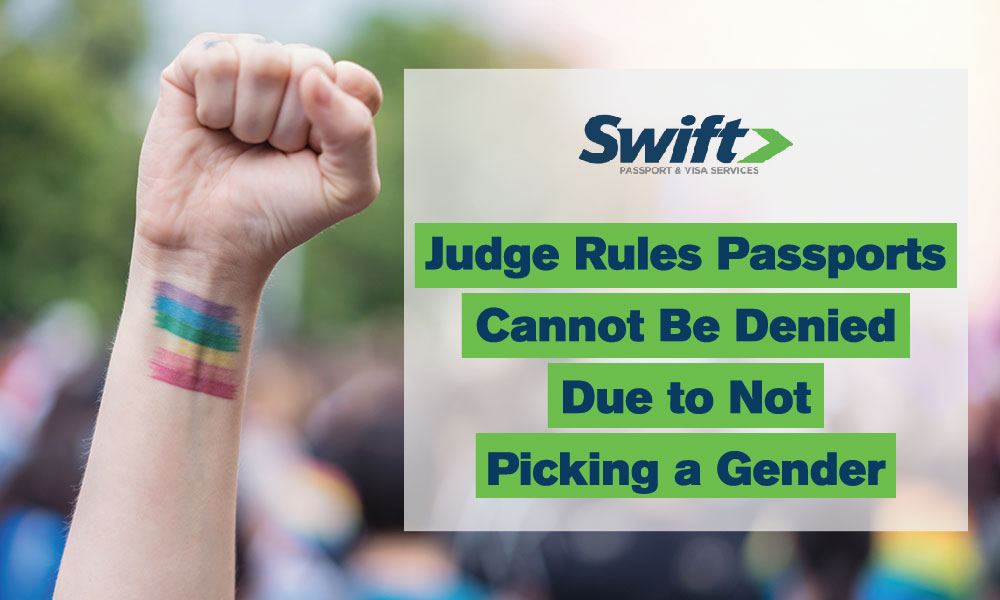
September wasn’t exactly what we’d call a “light” news month. With everything that’s going on in the country and around the world, you may have missed this wonderful story out of Colorado. Last month, a federal judge ruled that a person could not be denied a US passport solely for refusing to identify as either male or female. This is a landmark case for anyone who identifies as nonbinary.
The suit was brought by Dana Zzyym, a person born with ambiguous physical sexual characteristics who identifies as neither male nor female. Zzyym sued in 2015 when they requested an “X” gender marker on a passport application and were subsequently denied a passport by the State Department. The same judge, US District Judge R. Brooke Jackson, ordered the State Department to reconsider the passport application in 2016, but the department denied the application again in 2017.
In the new ruling, Judge Jackson rejected the State Department’s argument that having gender markers other than male and female would complicate the process of verifying a person’s identity. While the State Department has the right to reject a person’s passport application for good reason, the judge found that adhering to internal policies that fail to acknowledge the existence of intersex people did not constitute a good reason.
This particular ruling is limited to the passport application of Dana Zzyym, but advocates in the LGBT community are celebrating the ruling as a great step in the right direction. No other court decisions like this had previously existed, so this ruling will set great precedent for other intersex people who apply for passports in the future.
Interestingly, the ruling did not specifically call on the State Department to issue a passport to Zzyym but rather made it clear that a passport could not be denied solely on the basis of a gender marker. Zzyym’s attorneys have called on the State Department to act quickly in finally approving Zzyym’s application. Zzyym has been waiting to travel internationally since 2014, choosing to go through the hard legal struggle rather than settling for a gender marker that doesn’t match their identity.
While this ruling is the first of its kind, it’s worth noting that other states and countries have already started to make great progress on this front. For example, the International Civil Aviation organization, a UN agency that sets standards for international travel papers, has said that gender should be listed on passports, but it can be specified as male, female, X, or “unspecified.” Likewise, some countries allow residents to have passports that mark gender as male, female, X, or O. And some US states have also begun issuing driver’s licenses that have “X” as an option for the gender marker. Those states include California, Oregon, and Washington.
To learn more about this ruling, check out this article. You can also contact the Swift team anytime to ask questions about passport gender markers or anything else you might be curious about. And, as always, we can help you with your expedited passports and visa needs at the same time.

